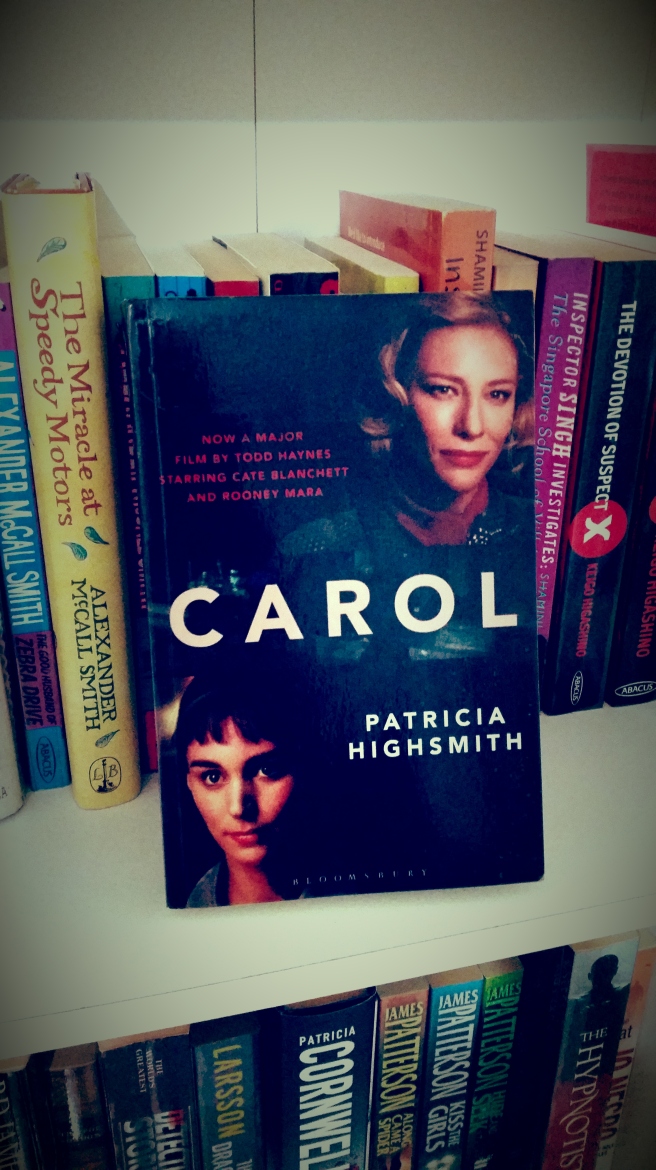Of all the romance novels I’ve read, I liked this one the best, and it’s because the love for the two characters was very apparent which is how a romance should be.
Despite the age and experience gap, I felt like the relationship between Carol and Therese was relatively equal since both women were equally infatuated with each other and wanted to be together. I can’t stand so-called romance novels where both parties are written in a way that they seem to dislike each other, all for the sake of passion. Carol and Therese are proof that tension in romance novels can result from other sources, though with it being a lesbian love affair, the tension came ready-made as homophobia.
My only fault would be that Carol was more aloof than I’d like her to be. She had a tendency to run hot and cold with Therese and given her infatuation for Carol, I wanted something better for her, although to be fair, she was going through a messy divorce and a custody battle, so that would have probably weighed a lot on her mind. Nevertheless, you could still feel the love between the two women.
And my heart continued to break for Therese, her naivety and innocence surrounding her love for Carol really emphasised how young she was, and how much learning she had to do:
How was it possible to be afraid and in love, Therese thought. The two things did not go together. How was it possible to be afraid, when the two of them grew stronger together every day? And every night. Every night was different, and every morning. Together they possessed a miracle.
Despite the emphasis on the romance, this was also very much a coming-of-age story for Therese. She comes into a new city with fears for her future, she doesn’t know what she wants to do, she’s restless with her low-paying job and has paralysing fears about being stuck in a dead-end job her whole life, she’s unsure about her relationship with her boyfriend; all her experiences could easily have been lifted out of the 1950s to the 2010s.
And although Highsmith broke out of her usual mould of psychological crime thrillers, she still couldn’t resist adding her signature plot device of the possibility of murder, but thankfully it didn’t detract from the story.
It says a lot about the state of LGBTQI fiction that ‘Carol’ is considered to be a lesbian love story that has a happy ending; although there are strong implications that Carol and Therese will pursue a relationship together and have high hopes about their future, Carol did lose custody of her beloved daughter. This isn’t so much a criticism about the plot, more about LGBTQI fiction in general, but I get that in the 50s, it was seen as breaking the mould.
On Another Note
I kept imagining Cate Blanchett and Rooney Mara as the respective characters.
It was also originally published as The Price of Salt and for collection purposes, I wouldn’t mind owning a copy with the original title (better yet if the author is stated to be “Claire Morgan” instead of Highsmith).
I was very curious why it was originally called ‘The Price of Salt’ and the below exchange between Dannie and Therese tied everything together.
…He smiled, looking at her hair, her lips, and it occurred to her Dannie had never seen her with this much make-up on. ‘You look grown up all of a sudden,’ he said. ‘You changed your hair, didn’t you?’
‘A little.’
‘You don’t look frightened any more. Or even so serious.’
‘That pleases me.’ She felt shy with him, yet somehow close, a closeness charged with something she had not felt with Richard. Something suspenseful, that she enjoyed. A little salt, she though.
I feel as if it’s meant to describe how the whole experience, not just of her relationship with Carol but the process of falling in love with her and understanding how the world would view their relationship, has toughened Therese, and the subsequent heartache, this salt, is the price she has had to pay to learn this.
I think ‘Carol’ suits the title of the story more because the whole focus was Carol and what she meant to Therese. Naming it ‘The Price of Salt’ changes the focus a little from a romance to a coming-of-age story.
